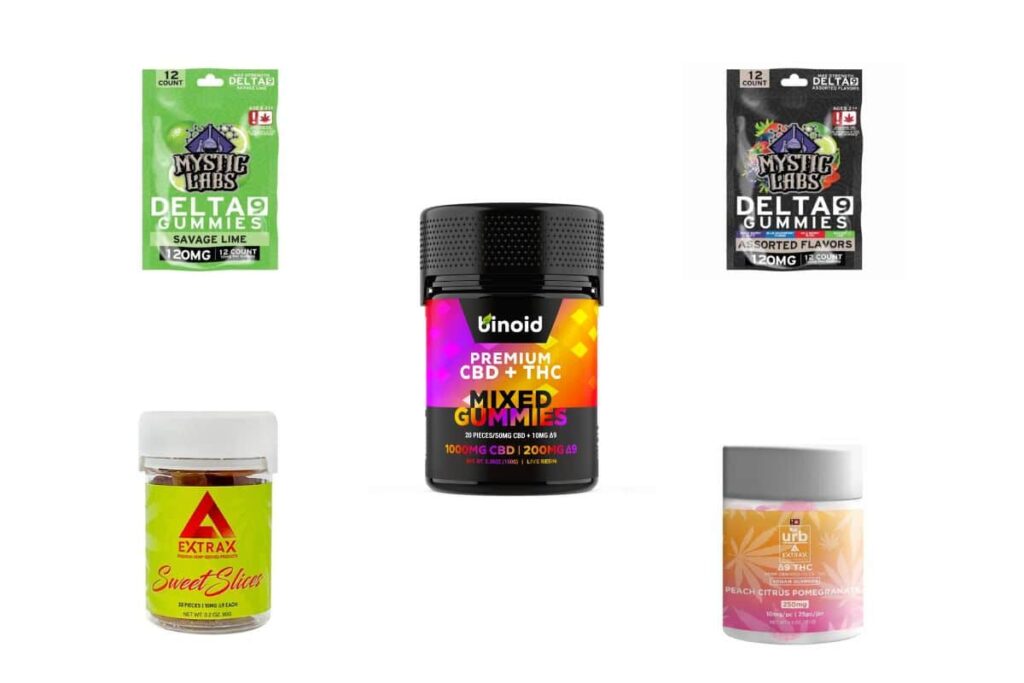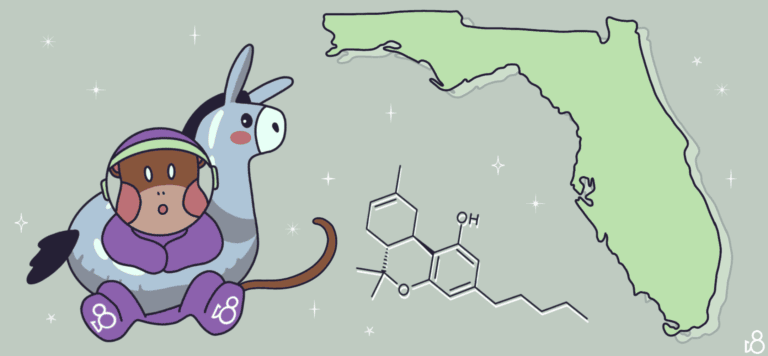Does Delta 8 Help With Nausea? Understanding its Effects on Upset Stomachs
Got a stomach doing somersaults? Making that queasy feeling scram is top priority. Meet Delta 8, THC’s cousin, stealing the show for its potential in the fight against nausea.
- Understanding Delta 8 THC
- Impact on the Endocannabinoid System
- Therapeutic Benefits and Uses
- Risks and Side Effects
- Legal and Regulatory Considerations
- Delta 8 Consumption Methods
- Guidance for Users
- Research and Studies
- Market Trends and Consumer Behavior
- Comparing Delta 8 and CBD
- Perspectives on Future Developments
- Frequently Asked Questions
- Can CBD oil be effective in treating nausea?
- What are the side effects associated with Delta-8 THC, including impacts on nausea?
- Which cannabinoids are most beneficial for alleviating nausea symptoms?
- How does Delta-9 compare to other cannabinoids in terms of nausea relief?
- Are there any cannabinoids specifically recommended for nausea related to pregnancy?
- In regards to nausea, how do different forms of cannabinoid consumption affect its efficacy?
Unlike its more well-known relative, delta 8 tends to produce milder psychoactive effects. This makes it a subject of interest for those seeking the therapeutic benefits of cannabinoids without the intense high associated with traditional cannabis use.
Studies investigating the efficacy of cannabinoids like delta 8 have shown promise. For example, a randomized controlled trial explored the use of intravenous delta-9-tetrahydrocannabinol to combat postoperative nausea and vomiting. The study suggested that the effects of THC and its analogs on nausea could be significant. Similarly, evidence suggests medicinal applications of delta-9-tetrahydrocannabinol and its derivatives might also benefit those with chemotherapy-induced nausea.
Understanding Delta 8 THC
When exploring the world of cannabinoids, you’ll come across Delta 8 THC (delta-8-tetrahydrocannabinol), a lesser-known compound with notable effects and uses. Here’s an insightful look into its makeup and how it compares to the more famous Delta-9 THC.
Chemical Composition
Delta 8 THC is one of the many cannabinoids found in the Cannabis sativa plant. Chemically, it’s an isomer of Delta-9 THC (tetrahydrocannabinol), the primary psychoactive component of cannabis. This means that Delta 8 THC and Delta-9 THC share the same molecular formula but have a different arrangement of atoms. Delta 8 THC has a double bond on the eighth carbon chain, whereas Delta-9 THC has this bond on the ninth carbon chain. This slight variance in their molecular structure profoundly affects how they interact with your body’s endocannabinoid system.
Comparison with Delta-9 THC
Delta-9 THC is the most abundant psychoactive compound in marijuana, responsible for the signature high. In contrast, Delta 8 THC is found in much smaller quantities in the cannabis plant. Despite their similarities, Delta 8 THC tends to exhibit a lower psychoactive potency compared to Delta-9 THC. It’s often reported to provide a more clear-headed experience with less anxiety, which some users prefer.
On the legality and availability side, Delta 8 THC sourced from hemp is federally legal in some places where Delta-9 THC remains restricted. This provides an alternative to consumers seeking therapeutic benefits such as alleviation of nausea without the intense high of marijuana-derived THC.
Impact on the Endocannabinoid System

The effectiveness of Delta 8 THC in managing nausea is closely linked to its interaction with your endocannabinoid system (ECS), particularly the cannabinoid receptors located throughout your body and central nervous system.
CB1 and CB2 Receptors
CB1 receptors are primarily found in your central nervous system and play a significant role in modulating neurotransmitter release, thus affecting various physiological processes. Delta 8 THC binds to these receptors, potentially mitigating nausea by altering signal transmission.
The presence of CB1 receptors in key brain regions associated with emesis control indicates that Delta 8 THC’s antiemetic effects may derive from its action on these sites.
CB2 receptors, while mainly present in the peripheral tissues of your immune system, can also influence the ECS’s response to nausea. They are not as directly involved in controlling nausea as CB1 receptors but support the overall balance of the ECS.
Influence on Neurotransmitters
Delta 8 THC’s interaction with CB1 receptors can regulate the release of various neurotransmitters, such as serotonin and dopamine, which are known to affect nausea and vomiting reflexes.
By modulating these neurotransmitters, Delta 8 THC may help alleviate such symptoms. The anti-emetic effects of cannabinoids are observed due to this very regulation, demonstrating the cannabinoid’s potential in influencing neurotransmitter-related responses in your brain’s emetic circuitry.
Therapeutic Benefits and Uses
| Therapeutic Benefit/Use | Description |
|---|---|
| 1. Pain Relief | Delta-8 THC may have analgesic properties, providing relief from pain. It interacts with the endocannabinoid system, which plays a role in pain regulation. |
| 2. Anxiety Reduction | Some users report that Delta-8 THC has a calming effect and may help reduce anxiety. However, individual responses can vary, and excessive use may lead to increased anxiety. |
| 3. Appetite Stimulation | Similar to Delta-9 THC, Delta-8 THC may stimulate appetite, which can be beneficial for individuals undergoing treatments that cause appetite loss. |
| 4. Antiemetic Effects | Delta-8 THC may have antiemetic properties, helping to reduce nausea and vomiting. This could be particularly useful for individuals undergoing chemotherapy. |
| 5. Neuroprotective Effects | Early research suggests that Delta-8 THC may have neuroprotective properties, potentially offering benefits for conditions affecting the nervous system. |
| 6. Sleep Enhancement | Some users report that Delta-8 THC helps with sleep, promoting relaxation and potentially aiding individuals with sleep disorders. |
| 7. Anti-inflammatory | Delta-8 THC may have anti-inflammatory effects, which could be beneficial for conditions involving inflammation. However, more research is needed to confirm these effects. |
Exploring the potential health benefits of Delta 8, you will find that it has several therapeutic applications, particularly in providing nausea relief and appetite stimulation, managing anxiety and offering pain relief. Each application is grounded in how the compound interacts with your body’s endocannabinoid system.

Relief from Nausea and Vomiting
Delta 8 has been observed to have antiemetic properties, which may be beneficial for you if you’re experiencing nausea and vomiting, especially as a result of chemotherapy. A study highlights that Delta -9-tetrahydrocannabinol was significantly more effective than placebo in reducing vomiting and nausea in cancer patients.
Appetite Stimulation
An increase in appetite is a notable effect of consuming Delta 8, making it a potential aid for those struggling with loss of appetite. Its ability to stimulate hunger can support cancer patients undergoing treatments that suppress appetite.
Anxiety Management
Your anxiety levels might be positively affected by Delta 8. Its anxiolytic effects can help you manage anxiety without the intensity of psychoactive effects often associated with Delta 9-THC. This makes Delta 8 a neuroprotective cannabinoid with fewer side effects.
Pain Relief
As an analgesic, Delta 8 is credited with pain relief properties, particularly in cases of inflammation and neuropathic pain. Its interaction with cannabinoid receptors has the potential to reduce the perception of pain, suggesting benefits for those with chronic pain conditions.
Risks and Side Effects
When considering delta-8 THC for nausea relief, you should be aware of possible risks and side effects. These can range from mild discomfort to more significant health concerns.
Potential for Intoxication
Delta-8 THC is a psychoactive compound, which means you might experience intoxicating effects. Even though it is less potent than delta-9 THC, the main compound in marijuana, you could still experience feelings of euphoria, altered sensory perception, and, in some cases, hallucinations. Care must be taken, especially if you need to drive or operate machinery, as your memory, reaction time, and coordination may be impaired.
Long-Term Health Risks
Using psychoactive substances like delta-8 THC might pose long-term health risks, particularly if you consume them frequently. Research is limited, but concerns include the potential impact on your memory and cognitive functions. The long-term effects of delta-8 THC are not well-studied, and there is a lack of comprehensive research to fully understand the risks.
Reports of Adverse Reactions
Adverse reactions can occur with delta-8 THC use, ranging from dry mouth and red eyes to more serious symptoms such as dizziness or loss of consciousness. Reports suggest that some individuals may be more susceptible to these side effects.
You should be particularly cautious if you have a history of adverse reactions to psychoactive compounds. Additionally, due to its psychoactive nature, delta-8 THC is not recommended for children as it may significantly affect their development and there is a risk of unintentional poisoning.
Legal and Regulatory Considerations

When considering the use of Delta-8 THC for nausea, you must be aware of the complex legal landscape that can affect access and use. At the federal level, laws are often in flux, while state legislatures vary widely in their approach to cannabis-derived substances.
Variations in State Laws
State laws governing Delta-8 THC are in constant evolution. This means your local legislation is a key factor in whether you can legally access and use this compound for nausea or other purposes.
In some states, Delta-8 THC is treated similarly to Delta-9 THC (the principal psychoactive ingredient in cannabis). As a result, it is regulated under state marijuana laws. In contrast, other states may allow the use of Delta-8 THC when derived from hemp. This aligns with the federal definition set out in the 2018 Farm Bill, which legalized hemp-derived cannabinoids.
Federal Legislation and DEA Stance
At the federal level, the DEA’s classification of controlled substances includes Delta-9 THC but does not explicitly mention Delta-8 THC. This leads to a gray area in its legal status. It is important to note that synthetic forms of Delta-8 THC are illegal under federal law.
Meanwhile, the FDA has not specifically addressed Delta-8 THC, but it has the authority to regulate cannabis-derived compounds. The agency may enforce actions if products are found to be unsafe.
The 2018 Farm Bill removed hemp-derived CBD and other hemp-derived cannabinoids from the DEA’s list of Schedule I controlled substances. Yet this does not automatically guarantee the legality of all hemp-derived products, including those containing Delta-8 THC. As of now, the federal legality of Delta-8 THC remains complicated and subject to interpretation and potential future regulation.
Delta 8 Consumption Methods

To effectively manage nausea, your choice of delta 8 consumption method can play a significant role in how quickly you feel relief and the potency of the effects. Below are specific methods that you can consider, each with its unique onset time and duration of effects.
Vaping and Smoking
Vaporizing or smoking delta 8 is a common method of consumption and typically provides a quick onset of effects.
When you inhale delta 8 through a vaporizer or smoke it, the compound enters your bloodstream directly via your lungs, which can alleviate nausea rapidly. Dosage can be challenging to measure when smoking, but vaping allows for a more controlled experience. This might involve microdosing or adjusting your dosage according to your needs.
Edibles and Gummies
Edibles and gummies infused with delta 8 offer a discreet and easy way to consume the compound. They come in pre-measured dosages, making it simpler for you to control your intake.
However, edibles and gummies may take longer to take effect since they need to be digested first. But the effects can last longer compared to inhalation. Opt for a smaller dose if you’re new to edibles, as their potency can be quite powerful.
Oils and Tinctures
Delta 8 oils and tinctures are versatile products that can be taken sublingually (under the tongue) or added to food and beverages.
The sublingual method allows delta 8 to be absorbed quickly into your bloodstream. This can help manage nausea without the wait associated with edibles. Tinctures come with a dropper that you can use to measure your dose accurately, which assists in maintaining consistency with your consumption.
Guidance for Users
When considering delta-8 for nausea relief, it’s crucial to focus on proper dosing and engaging with healthcare providers for personalized advice. These steps ensure you use delta-8 effectively and safely.
Recommended Dosages
- Start Low: Begin with a small dose of delta-8 THC, such as 5-10 mg, and observe how your body responds before taking more.
- Increase Gradually: If no adverse effects are noticed and nausea is not adequately controlled, increment the dose slowly.
Consultation with Healthcare Providers
- Discuss: Bring up the topic of delta-8 THC with your doctor, especially if you have medical conditions that could be affected by its use.
- Drug Testing: Since delta-8 THC might show up on a drug test, discuss the implications with your healthcare professional if you’re subject to testing.
Research and Studies
Delta-8-tetrahydrocannabinol (Delta-8 THC) is an analogue of the more well-known Delta-9 THC. Your interest in its application for nausea may be informed by several research studies exploring the potential benefits.
Clinical Trials: A randomized controlled trial examined the effectiveness of intravenous Delta-9 THC for preventing postoperative nausea and vomiting. This study’s relevance to Delta-8 THC lies in the similarity of the two compounds, suggesting Delta-8 could be studied further for similar benefits.
Research by Raphael Mechoulam: Renowned for his work in cannabis research, Raphael Mechoulam pioneered the study of cannabinoids. His work has been instrumental in uncovering the properties of various cannabinoids, including Delta-8 THC, as detailed in publications like the British Journal of Pharmacology.
Comparative Efficacy: Another prospective, randomized evaluation compared Delta-9-tetrahydrocannabinol to placebo in reducing the effects of chemotherapy-induced nausea. Through comparison, one might infer the potential of Delta-8 THC in similar contexts, although direct studies on Delta-8 are needed.
Anecdotal Evidence: While not as scientifically rigorous as controlled studies, anecdotal reports from individuals may suggest some benefit of Delta-8 THC in managing nausea. However, these claims should be considered with caution.
- Regulation and Quality: It’s critical to understand the regulatory environment surrounding Delta-8 THC remains complex, which may affect the availability and consistency of evidence.
Market Trends and Consumer Behavior

As you navigate the rapidly evolving market of Delta-8 THC, understanding product availability and how these products are marketed is crucial, especially when considering their potential use for alleviating nausea.
Product Availability and Retailers
Delta-8 THC has surged in popularity due to its purported benefits, such as nausea relief. You’ll find an array of products containing Delta-8 THC at various retailers—from dedicated cannabis dispensaries to online platforms.
The product availability is extensive, offering you oils, edibles, and vapes, each with different concentrations of Delta-8 and various terpenes that may influence efficacy.
- Cannabis Dispensaries: A traditional and reliable source for Delta-8 products.
- Online Retailers: Convenient access to a broader range of options, often with detailed product descriptions.
It is important to verify the legitimacy of the retailers and the authenticity of their products to ensure safety and efficacy.
Marketing Strategies and Claims
As you explore Delta-8 THC products, you’ll encounter a wide range of marketing strategies. Retailers often highlight the therapeutic effects, including anti-emetic properties that can help with nausea.
However, be aware of exaggerated claims and look for reputable sources that back up these assertions. Manufacturers and sellers may also emphasize the legal status of Delta-8 THC or its supposed reduced psychoactive effects compared to Delta-9 THC to attract consumers.
- Claims to scrutinize: “All-natural,” “Highly effective,” or “Quick relief for nausea”
- Check for evidence: Reliable third-party lab results or peer-reviewed research
The clarity of information presented and the transparency of marketing communications are key indicators of a reputable product and brand.
Comparing Delta 8 and CBD

When you’re considering the therapeutic potential of cannabinoids, Delta 8 and cannabidiol (CBD) are noteworthy. Both substances are found within the Cannabis sativa plant, yet they interact with your body’s endocannabinoid system differently, leading to distinct effects.
Delta 8, short for delta-8-tetrahydrocannabinol, is a psychoactive cannabinoid similar to the more renowned delta-9-THC. It is reported to provide a milder high and may have potential to reduce nausea, as outlined in research regarding consumer experiences with Delta 8.
On the other hand, CBD, or cannabidiol, is non-intoxicating and has been more widely studied for its health benefits including its anti-nausea effects.
| Cannabinoid | Psychoactive | Potential Benefits | Common Sources |
| Delta 8 | Yes | Reduces nausea | Hemp plant, Extracts |
| CBD | No | Reduces nausea | Hemp plant, Oils |
Though both can potentially relieve nausea, they do so through different mechanisms. Your experience with products derived from hemp plant, such as oils or edibles, might differ considerably depending on whether they contain Delta 8 or CBD.
Some research has shown that cannabis products high in CBD and low in THC are associated with less symptom relief immediately after use, but this can vary between individuals.
Deciding whether Delta 8 or CBD is more suitable for your needs may depend on your preference for the presence of psychoactive effects and the legal status in your area, as regulations can differ for each substance. It’s important to procure these products from reputable sources to ensure quality and safety.
Perspectives on Future Developments
In considering the future of Delta-8 THC for nausea relief, you’ll find an evolving landscape marked by ongoing scientific discoveries and potential changes in the legal framework that govern its use.
Scientific Discoveries
Research continues to deepen our understanding of Delta-8 THC and its medicinal applications. One such application is in treating nausea.
Innovative studies may soon provide robust clinical evidence. This evidence is required for the development of new pharmacological preparations.
With medical advancements, you may witness the emergence of highly targeted therapies. These therapies maximize the therapeutic effects while minimizing any side-effects.
Changes in Legal Framework
The legal landscape surrounding Delta-8 THC is as dynamic as it is complex. Your understanding of its current status and willingness to stay informed about forthcoming legal changes are crucial.
As regulatory bodies consider new research, you might see legal frameworks adapt. These changes could potentially expand access to Delta-8 THC products for medical purposes.
These changes could also shape how they are developed and brought to market.
Frequently Asked Questions
Navigating the nuanced effects of cannabinoids on nausea can be complex. Here, you’ll find precise answers to common inquiries about Delta-8 THC and other related compounds.
Can CBD oil be effective in treating nausea?
CBD oil may help in managing nausea by interacting with serotonin receptors that influence nausea and vomiting. However, individual results can vary, and more research is needed.
What are the side effects associated with Delta-8 THC, including impacts on nausea?
While Delta-8 THC can potentially alleviate nausea, it may also cause side effects such as dry mouth, changes in appetite, dizziness, or feelings of euphoria. It’s essential to consider these when evaluating its use for nausea.
Which cannabinoids are most beneficial for alleviating nausea symptoms?
THC, particularly Delta-9-tetrahydrocannabinol, has been noted for its antiemetic properties. It is beneficial in reducing nausea and vomiting, especially in chemotherapy patients.
How does Delta-9 compare to other cannabinoids in terms of nausea relief?
Delta-9-tetrahydrocannabinol is often considered more potent than other cannabinoids for nausea relief. This is particularly true in the context of chemotherapy-induced symptoms.
Are there any cannabinoids specifically recommended for nausea related to pregnancy?
The use of cannabinoids for nausea during pregnancy is not recommended due to potential risks to the fetus. Pregnant individuals should consult healthcare professionals for safe treatment options.
In regards to nausea, how do different forms of cannabinoid consumption affect its efficacy?
The efficacy of cannabinoids for nausea can vary based on the method of consumption. Inhalation provides more immediate relief compared to oral ingestion. Meanwhile, oral ingestion may have a delayed onset but potential for longer-lasting effects.








